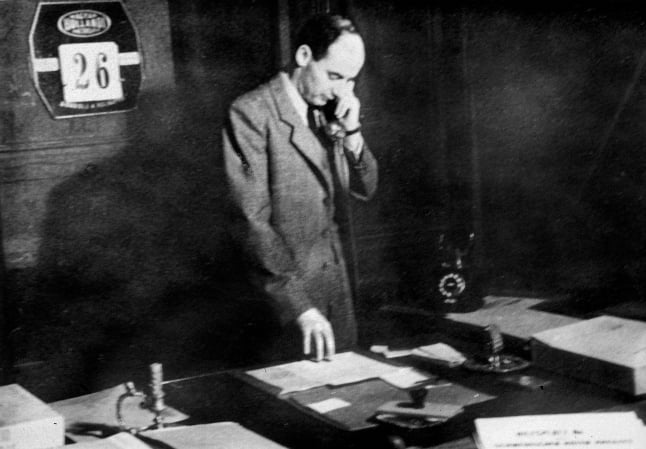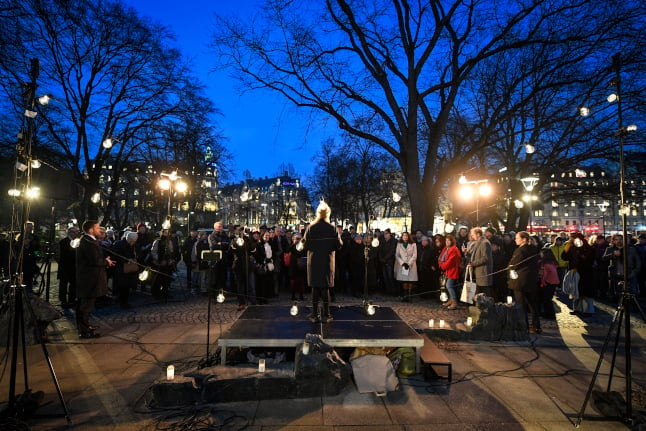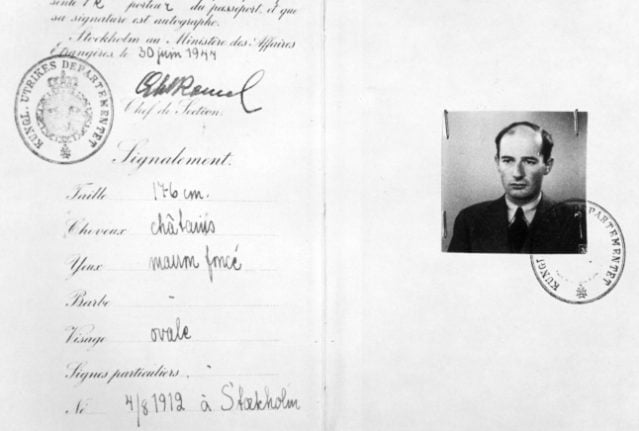On January 17th, 1945, Raoul Wallenberg disappeared from the face of the earth, together with his loyal aide, Vilmos Langfelder.
Six months earlier, on July 9th, 1944, he arrived in Budapest, as an emissary of Sweden, with the backing of the World Refugee Board. His mission was to try saving the remainder of the Jewish community in Hungary.
What he achieved in such a short period is nothing but extraordinary. His feats have been well documented and there is no need to dwell on them. To be sure, he managed to save tens of thousands of innocent lives from the Nazi extermination machinery and their Hungarian henchmen.
In January 1945, he sensed the war was ending on the Hungarian front. Eventually, the Soviet forces would expel the Nazis and become the new rulers. With that in mind and worrying about the fate of the Jewish refugees, he arranged a meeting with Marshal Rodyon Malinovsky, Supreme Commander of the Red Army in that region. The two men were supposed to meet at the Soviet Military Command situated in Debrecen, some 195 kilometres from Budapest.
On January 17th, unheeding his colleagues' warnings, he instructed Langfelder to drive him to Debrecen. When they arrived to their destination, rather than being escorted to Marshal Malinovsky's office, the two men were immediately arrested by the SMERSH (Soviet Military Intelligence Unit) and rushed to Moscow.
Ever since, Wallenberg and Langfelder just vanished from the face of the earth. Most accounts indicate that they were transferred to the infamous Lubyanka prison in Moscow, where they underwent harsh interrogation and at some point, summarily executed by their captors.
By the end of the 20th century, I had the privilege of establishing the International Raoul Wallenberg Foundation, together with my late friend, US Congressman and Holocaust survivor Tom Lantos (himself saved by Raoul Wallenberg). I have dedicated all my life to the Recognition of Goodness, one of the pillars of my Jewish education, and realised that nobody deserves our gratitude more than Raoul Wallenberg and all the brave women and men who reached out to the persecuted ones. Today, our NGO is presided by Mr Eduardo Eurnekian, a renowned businessperson and philanthropist, himself the son of survivors of the Armenian Genocide.

Raoul Wallenberg in his office in Budapest. Photo: Pressens Bild/Scanpix
Seventy-six years have elapsed from the day Wallenberg was apprehended. The Soviet Union has since collapsed and disintegrated. Russia has a new regime but even so, only vague figments of information came up to the surface regarding Wallenberg's fate.
One of them was in the form of a letter I received by the then deputy chief of mission of the Russian Federation in Washington DC, Mr Alexander Darchiev.
Mr Darchiev is one the most senior and seasoned diplomats in the Russian Foreign Service. For several years, he headed the North American Desk and nowadays he is the ambassador in Ottawa, Canada.
Darchiev's letter came in response to a letter I had sent weeks earlier, as founder of the International Raoul Wallenberg Foundation to President Vladimir Putin (through his then adviser, Mr Veniamin Yakovlev). I respectfully urged the Russian head of state to allow free and unfettered access to the historical KGB archives to shed light into the fate and whereabouts of Raoul Wallenberg. I clarified that our NGO was not intending to put the blame on Russia for Wallenberg's disappearance, as we understood the historical context and made a clear difference between Stalin's Soviet Union and the Russian Federation.
Mr Darchiev's response underscored the official position of the Russian Federation, as spelled out by the Russian part of the bilateral Working Group, which investigated the circumstances of Wallenberg's fate:
“Responsibility for the death of Mr. Wallenberg lies with the USSR leadership at that time and on J.V. Stalin personally. No other authority could deal with a Sweden diplomat, representative of a neutral state, a member of the 'Wallenberg House', well known abroad and to the Soviet Government.”
To me, Ambassador Darchiev's reply makes sense. Bearing in mind how things worked in the Stalinist Soviet Union, it is hard to believe that the detention and probable execution of such a high profile figure could have been made without leaving an extensive paper trail in the KGB archives.
If that is the case, why is Russia reluctant to allow access to the relevant archives? This question remains unanswered.
Why Raoul Wallenberg was apprehended in the first place and most likely executed? To be sure, Stalin was a ruthless and paranoid dictator. Human lives meant nothing to him. Perhaps, he thought Wallenberg was an American spy that could be used as a bargaining chip in Russia's post-war negotiations with her former allies?

An event in memory of Raoul Wallenberg, held in Stockholm in January 2020. Photo: Ali Lorestani/TT
Going back to Mr Darchiev's letter, I would like to stress the following sentence: “….the 'Wallenberg House' {was} well known abroad and to the Soviet Union”. One has to remember that the Wallenberg family was one of the most powerful and influential economic players in Sweden (that is even true today, to a great extent). This conglomerate had huge stakes in Swedish industries and financial groups. During the years of the war, the family businesses were co-managed by Marcus and Jacob Wallenberg (first cousins of Raoul's father, who passed away a few months before his son's birth). Amid Sweden's neutrality, the Wallenbergs engaged in profitable trade transactions with both Allies and the Axis. Marcus was in charge of the deals with the former and Jacob with the latter.
Had Stalin known about this, one could not rule out that he intended to blackmail the Wallenbergs by holding their relative as a hostage. Alas, neither the Swedish government nor the Wallenberg family had displayed any real efforts to achieve Raoul's release, other than some perfunctory gestures. That being the case, it is possible that Stalin had lost his patience and reached the conclusion that Raoul Wallenberg was expendable.
Our NGO has closely worked with Raoul's late half-sibling, Prof Guy von Dardel and Nina Lagergren, who unfortunately passed away without realising their dream to bring their brother back home. We continue our journey together with Raoul's tireless grandnieces, Louise de Dardel and Marie Dupuy.
Raoul's mother, Maj, and his stepfather, Fredrik von Dardel, both took their own lives in 1979, out of despair.
I am not deterred by time. I call upon the Russian authorities to enable unfettered access to the KGB archives as they might contain the clues into Raoul's fate. I also urge the Swedish government to demand answers from the Russians.
Raoul Wallenberg was one of the greatest heroes of humankind. He, who risked his life to save innocent lives, should not be left behind.
Written by Baruch Tenembaum, founder of the International Raoul Wallenberg Foundation



 Please whitelist us to continue reading.
Please whitelist us to continue reading.
Member comments